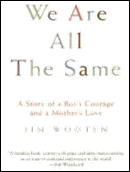题目内容
  | It’s located at the western gate, just beside the ticket center. The center provides a series of services, such as guide service, free water supply, guide books, charging mobile phones, baby carriage, first-aid medicine, and simple health care. You can also buy some souvenirs like stamps, postcards and tiger toys. | ||
  | It’s located at the eastern and western gates of the Pearl Spring Scenic Area. There are all kinds of tickets, such as tickets for the scenic area and tickets for amusement park. | ||
  | Dingshan Pavilion Dining Hall, a large-scale dining centre, can receive 300 people for dining at the same time. It lies in the Scenic Area. Tourists can enjoy the beautiful scenery while eating. It’s open from 8 a.m. to 8 p.m. every day. | ||

| You can take No. 168 bus from Gulou Bus Stop and get off at Pearl Spring Bus Stop. The bus stop is just outside the Scenic Area. You can also drive here. |
| A.take a bus | B.buy a ticket | C.get guide books | D.have snacks |
| A.is a large-scale dining centre |
| B.is located next to the Ticket Centre |
| C.is open to the public 16 hours a day |
| D.can receive 300 people for dinner in a day |
| A.only take a bus there |
| B.get water for free if they are thirsty |
| C.have one choice if they want to buy tickets |
| D.sell souvenirs, such as stamps and postcards |
小题1:C
小题2:A
小题3:B
试题分析:这篇短文主要介绍了珍珠泉风景区的四个服务设施:游客服务中心,售票中心,餐饮中心及交通服务指南。
小题1:细节理解题。根据短文旅行服务中心介绍The center provides a series of services, such as guide service, free water supply, guide books, charging mobile phones, baby carriage, first-aid medicine, and simple health care.,故选C。
小题2:细节理解题。根据Dining Hall描述Dingshan Pavilion Dining Hall, a large-scale dining centre,故选A。
小题3:细节理解题。根据短文提供的服务The center provides a series of services, such as guide service, free water supply, guide books, charging mobile phones, baby carriage, first-aid medicine, and simple health care.可知提供免费的水。故选B。

练习册系列答案
 天天向上一本好卷系列答案
天天向上一本好卷系列答案 小学生10分钟应用题系列答案
小学生10分钟应用题系列答案
相关题目

